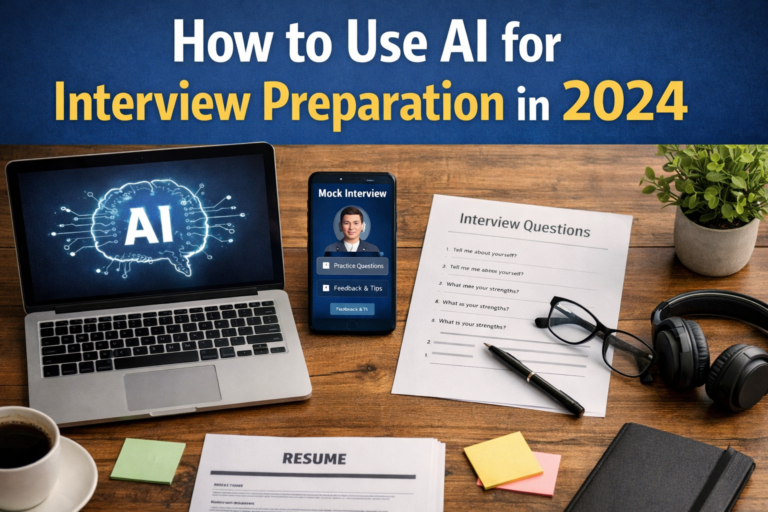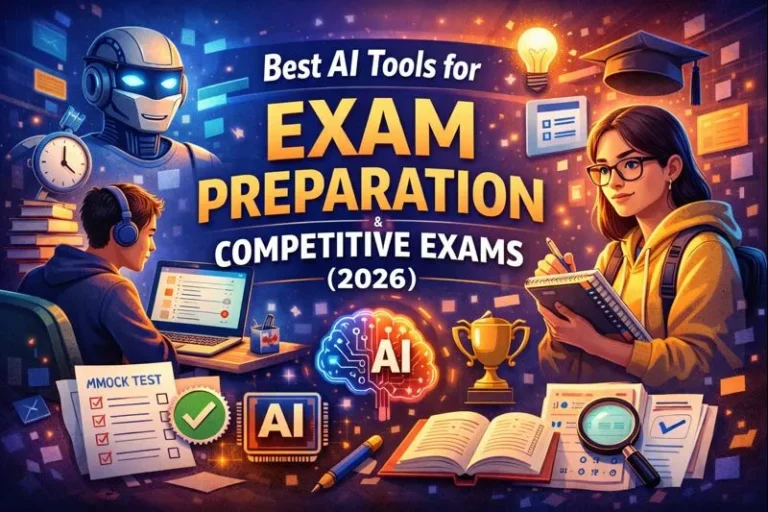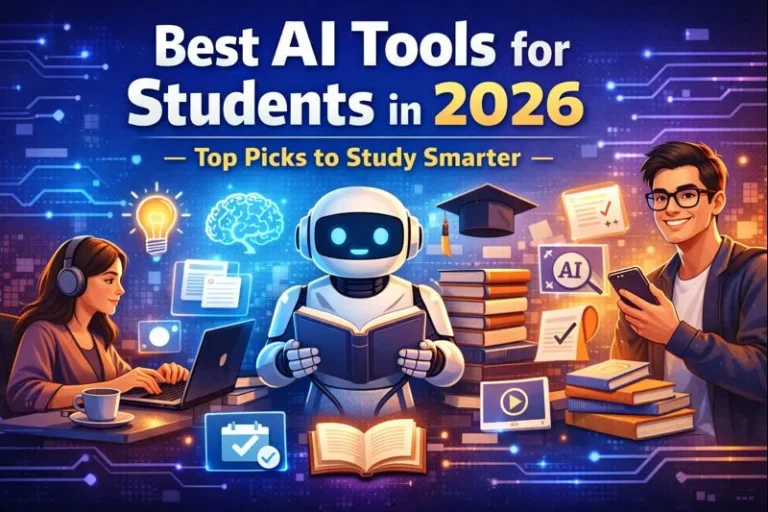Learn the key differences between artificial intelligence vs human intelligence in this comparison. Perfect for essays and group discussions, we explore how AI and human minds approach problem-solving, creativity, and decision-making, highlighting their strengths and limitations.

The ongoing debate of Artificial Intelligence vs Human Intelligence has garnered significant attention in recent years as technology advances a.
Understanding Artificial Intelligence vs Human Intelligence
Human Intelligence refers to the cognitive abilities of humans to learn, reason, adapt, and understand complex concepts. It is characterized by several key elements:
- Learning and Adaptation: Human intelligence is dynamic, enabling individuals to learn from experiences and adapt to changing circumstances. This learning process involves a combination of education, observation, and reflection, allowing humans to develop critical thinking skills and creativity.
- Emotional Understanding: One of the most significant aspects of human intelligence is emotional intelligence, which encompasses the ability to recognize, understand, and manage emotions in oneself and others. This capacity for empathy allows humans to navigate complex social interactions and build meaningful relationships.
- Creativity and Original Thought: Humans possess a unique ability to think abstractly and generate original ideas. This creativity is often influenced by personal experiences, emotions, and cultural contexts, enabling individuals to develop innovative solutions to problems.
- Ethical Reasoning: Human intelligence involves moral reasoning, allowing individuals to make ethical decisions and navigate complex dilemmas. This capability is influenced by personal values, societal norms, and emotional considerations.
Human intelligence is shaped by both genetic and environmental factors, and it encompasses a wide range of abilities, including logical reasoning, emotional empathy, and ethical decision-making.
Defining Artificial Intelligence vs Human Intelligence
Artificial Intelligence (AI) refers to the development of computer systems capable of performing tasks traditionally requiring human intelligence. These tasks include:
- Decision-Making: AI systems can analyse data and make decisions based on programmed algorithms and patterns.
- Speech Recognition: AI technologies can interpret spoken language, enabling applications such as virtual assistants and voice-activated systems.
- Visual Perception: AI can analyse images and videos, recognizing objects and patterns, which is critical for applications like facial recognition and autonomous vehicles.
- Creative Processes: Some AI systems can generate content, such as writing and art, by learning from existing datasets.
AI operates through mathematical models and data processing rather than emotional or abstract reasoning. Its key strengths include:
- Speed and Efficiency: AI can process vast amounts of data at incredible speeds, making it ideal for tasks that require rapid analysis and decision-making.
- Scalability: AI systems can handle repetitive tasks without fatigue, enabling increased efficiency in fields such as finance, healthcare, and manufacturing.
However, AI lacks true emotional understanding and creativity, limiting its effectiveness in areas requiring empathy and human-like insight.
Key Comparisons: Artificial Intelligence vs Human Intelligence
- Processing Power and Speed
- Artificial Intelligence: While AI excels in processing speed, the nuances of Human Intelligence vs Artificial Intelligence come into play when we consider emotional understanding and ethical decision-making..
- Human Intelligence: In discussions about creativity, the distinction between Human Intelligence vs Artificial Intelligence highlights how humans can produce original thoughts, whereas AI relies on existing data.
- Learning and Adaptability
- Artificial Intelligence: AI learns through algorithms and data input, enabling it to quickly absorb and process vast amounts of information. However, AI may struggle with novel situations that fall outside its training data, limiting its adaptability.
- Human Intelligence: Humans learn through a combination of experiences, education, and reflection. This experiential learning allows individuals to adapt to new and unexpected situations effectively, applying knowledge across diverse contexts.
- Creativity and Innovation
- Artificial Intelligence: AI can generate novel combinations based on existing data and excels in pattern recognition. However, it is limited in its capacity for true originality and emotional resonance. AI-generated content often lacks the depth and nuance found in human-created works.
- Human Intelligence: Humans are capable of genuine creativity and original thought, drawing on their emotions and experiences to develop innovative ideas. This ability to think abstractly and “outside the box” is a hallmark of human intelligence.
- Emotional Intelligence and Empathy
- Artificial Intelligence: AI can recognize and respond to emotional cues based on programming but lacks genuine emotional experiences. This limitation can hinder AI’s effectiveness in nuanced social interactions, where empathy and emotional understanding are essential.
- Human Intelligence: Humans possess deep emotional understanding and empathy, allowing them to navigate complex social situations. This capability enables individuals to form meaningful relationships and respond effectively to others’ needs and emotions.
- Ethical Decision-Making
- Artificial Intelligence: AI makes decisions based on programmed algorithms and data, which can lead to consistent outcomes. However, it may lack moral reasoning and ethical considerations, necessitating explicit programming of ethical guidelines.
- Human Intelligence: Humans are capable of moral reasoning and ethical decision-making, allowing them to navigate complex ethical dilemmas. This ability is influenced by personal values, cultural norms, and emotional factors.
The Ongoing Debate: Artificial Intelligence vs Human Intelligence
The debate surrounding artificial intelligence vs human intelligence is increasingly relevant in today’s technology-driven world. As AI systems become more sophisticated, the distinction between machine capabilities and human cognitive functions is a topic of intense discussion. This debate is not only prevalent in academic essays but also in everyday group discussions, where individuals ponder the implications of AI on society.
Key points in this debate include:
- Nature of Intelligence: At the core of the debate is the question of what constitutes intelligence. AI operates based on algorithms and data patterns, allowing it to excel in tasks like data analysis and predictive modelling. However, human intelligence encompasses emotional understanding, creativity, and moral reasoning, which are areas where AI struggles.
- Creativity and Originality: While AI can generate content by recombining existing ideas, it lacks the ability to produce truly original thoughts. Humans, on the other hand, can think abstractly and draw on personal experiences to create innovative solutions. This distinction raises important questions in essays and discussions about the future of creativity in a world increasingly influenced by AI technologies.
- Emotional Intelligence: Another significant aspect of the debate is the role of emotional intelligence. Humans are naturally adept at understanding emotions, making nuanced decisions, and navigating complex social situations. In contrast, AI lacks genuine emotional understanding, which can limit its effectiveness in roles that require empathy and interpersonal skills.
Engaging in Group Discussions
In group discussions about artificial intelligence vs. human intelligence, participants often explore these themes, debating the ethical implications of AI and its potential to augment or replace human roles. These conversations can lead to deeper insights about the future of work, creativity, and the evolving relationship between humans and machines.
Such discussions can also explore:
- AI in the Workplace: How will AI impact job roles and employment opportunities? Will it replace human workers or create new job categories that require human oversight and creativity?
- Ethical Considerations: What are the ethical implications of relying on AI for decision-making in critical areas such as healthcare, criminal justice, and finance?
- Human-AI Collaboration: How can humans and AI work together to enhance productivity and innovation? What are the best practices for integrating AI into various industries?
The Future: Collaboration Rather Than Competition
As we continue to develop AI, the future likely lies not in competition between AI and human intelligence but in collaboration. By leveraging the strengths of both forms of intelligence, we can create powerful synergies:
- Data-Intensive Tasks: AI can handle data-intensive tasks, freeing humans to focus on creative and strategic thinking. This collaboration allows for a more efficient allocation of resources and talents.
- Human Oversight: Human oversight can guide AI development and application, ensuring ethical considerations are taken into account. By incorporating human values into AI systems, we can create technologies that align with societal norms and expectations.
- Breakthrough Innovations: Combining AI’s processing power with human intuition can lead to breakthrough innovations. This partnership can enhance problem-solving capabilities, driving advancements in various fields, from healthcare to education
List of popular AI tools:
Conclusion
In conclusion, while AI has made significant advancements, human intelligence remains unique in its creativity, depth, and emotional understanding. The debate between Artificial Intelligence vs Human Intelligence emphasizes the strengths of each. By leveraging the capabilities of both, we can foster innovation and create a future where AI enhances human life rather than replaces it. Ultimately, collaboration between these two forms of Artificial Intelligence vs Human Intelligence Understanding holds the key to societal progress.




exciting as all these missions and telescopes are, there’s another game-changer in the mix: artificial intelligence (AI). AI and machine learning are revolutionizing how scientists process and analyse the vast amounts.